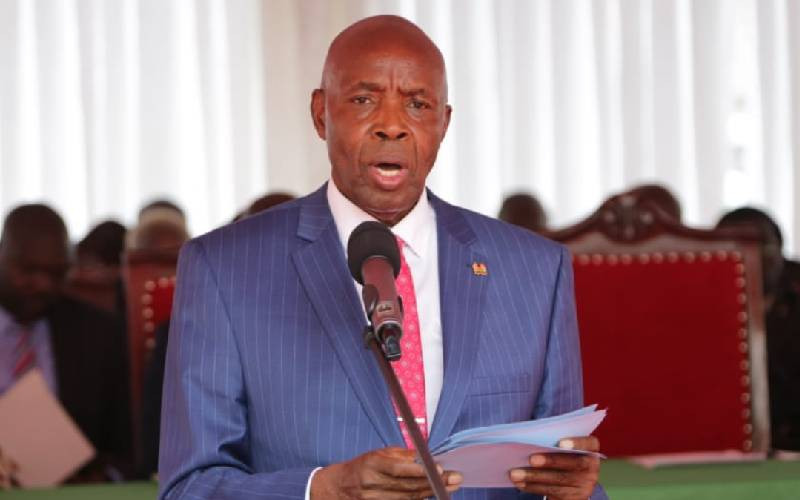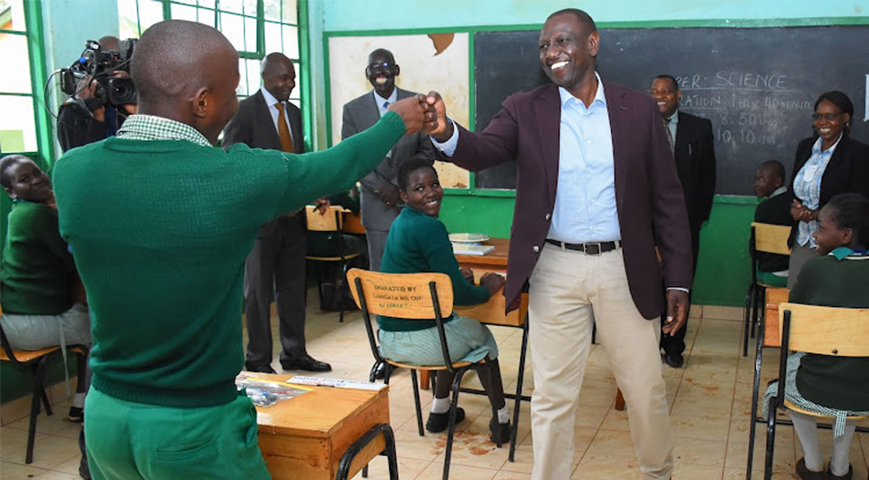Kennedy Echesa, an education law expert, has warned that the government's financial commitment to the education sector needs to be revised.
Speaking on Citizen TV's Day Break program on Wednesday, Echesa noted the government's 100% transition policy, which states that all children should continue their education regardless of how well they perform on tests.
He noted that despite repeated promises of additional funding by the government, the program had created demand in the education sector, which he claims the government still needs to match.
"The administration and the Ministry of Education are lying. The need for education is growing. The government claims to have increased funding for the education sector with the 100% transition program, according to Echesa.

Did you read this?
His worries followed widespread worries among secondary school principals that delays in the government's delivery of capitation money would unavoidably harm some critical events on the academic calendars.
The school administrators pressed the government to raise funding per child at a meeting held in Mombasa last week to reflect the shifting economic conditions.
With Ksh. Six hundred twenty-eight billion set aside, the government has increased funding this fiscal year from 25% to 29%; the ministry claimed that the problem of supporting not only secondary education but the entire sector would be better handled.
Ezekiel Machogu, the cabinet secretary for education, reassured them that the government had allotted enough funding for the plans for this fiscal year.
Echesa, however, asserts that the issue with government money for the education sector is that it does not reach the schools.
The issue arises when funding that needs to be more adequate does not even reach the schools, according to the expert. "What we allocate to the education sector is not enough."

"Capitation is currently estimated at Ksh. 22,400, of which the ministry has plundered Ksh. 5, making it contingent on infrastructure, leaving the school with about Ksh. 15, leaving. Additionally, the government has kept money for things like activity and textbook funding that they do not account for. however, he continued, "The government does not support activities.
His opinions concur with those expressed by the school leaders last week. Indimuli Kahi, the Kenya Secondary Schools Heads Association (KESSHA) chairperson, claimed that the Ksh. 22,444 capitation that the government provides to each high school student needs to be revised, and it also arrives late and needs to be fully paid.
Then Kahi added, "We don't even receive 100% of the Ksh.22,000; there was a balance of Ksh.4,000 last year; this year, we have received Ksh.17,000; and we need the remainder.

The schools maintain that in addition to negatively impacting academic performance, extracurricular activities like athletics, theatre, and the arts are also negatively impacted by the parent's failure to pay fees on time.
Echesa concurred, pointing out that the Term 2 ball games are ongoing.
"Despite the fact that three schools are meant to advance to the regional level, Kisumu County has made it clear that only one school would do so. He asked, "Where would they obtain the money when schools in Kakamega have to pay for their activities?
According to school administrators, the government should boost the capitation per pupil in addition to providing complete and timely funding.
According to Kahi's statement last week, "We propose that the Ministry of Education consider raising the capitation from the current amount of Ksh.22, 244 that we had proposed last year to Ksh.30,000."









